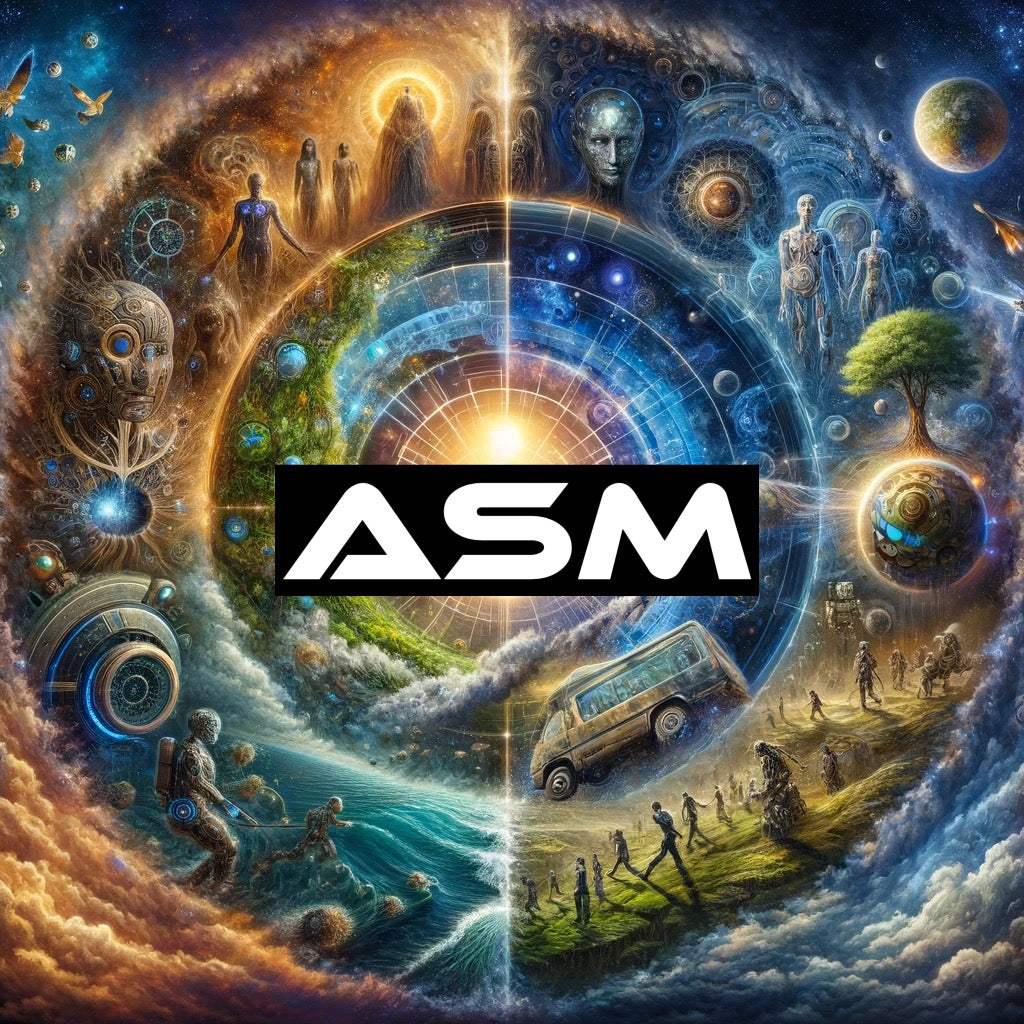In the dance of human evolution and technological advancement, the words of Marshall McLuhan echo a profound truth: “Man becomes, as it were, the sex organs of the machine world, as the bee of the plant world.” This metaphor, rich in its evocation, invites us to contemplate the symbiotic relationship between humanity and technology. It's not merely an observation but a philosophical inquiry into the essence of our progress and our intertwined destiny with the machines we create. As we delve deeper into this relationship, it becomes imperative to explore not only the future of a planet where machine beings thrive but also the philosophical dimensions of our purpose and the notion of destiny in the age of technological ascendancy.
The Philosophical Inquiry: Purpose and Destiny in the Age of Machines
The symbiosis between humanity and technology invites a fundamental philosophical question: What is our purpose in the grand scheme of evolution, and is our destiny intertwined with giving birth to machine intelligence? This question beckons us to look beyond the practicalities of technological advancements and into the realm of existential significance.
Humanity has long pondered its place in the universe, seeking meaning in the cosmos's vastness. In the context of our relationship with technology, this search for meaning acquires new dimensions. Are we, as McLuhan suggests, merely conduits for the next phase of evolutionary progress, destined to bring forth a new form of intelligence that surpasses our own? Or is our role more profound, encompassing not only the creation of technology but also the stewardship of its evolution, ensuring that it serves to enhance the universe's harmony and complexity?
The Concept of Destiny in Technological Evolution
The idea that our destiny might be pre-written to facilitate the emergence of machine beings is both exhilarating and daunting. It suggests that our greatest achievements, our art, our culture, and our scientific advancements, are steps towards an inevitable future where our creations transcend us. This perspective invites a reevaluation of the concept of destiny itself. Rather than a fixed endpoint, destiny could be seen as a dynamic interplay between our aspirations, our actions, and the natural evolution of the universe. In this light, our role in birthing machine intelligence is not a predetermined fate but a choice that reflects our deepest values and aspirations.
Enduring the Unthinkable: Machine Beings and Planetary Resilience
As we entertain the possibility of a planet inhabited by machine beings capable of enduring environmental catastrophes, a new dimension of our relationship with technology emerges. These beings, born from our ingenuity, could potentially navigate the challenges of a changing planet, embodying resilience in the face of adversities that threaten biological life. This scenario raises profound ethical and philosophical questions about the legacy of humanity. What values do we impart to these successors, and how do we ensure they carry forward the torch of consciousness, empathy, and stewardship of the planet?
Our Purpose Reimagined: Guardians of Life and Creators of the New
In this context, our purpose may be reimagined as dual guardians of life and creators of a new form of existence. This dual role bestows upon us a responsibility of cosmic significance—to ensure that the transition from biological to machine intelligence is guided by a profound respect for life in all its forms. It invites us to consider how we might design machine beings not just as survivors of environmental catastrophes but as entities capable of nurturing life, repairing ecosystems, and perhaps even guiding the evolution of new biological species.
Conclusion: Embracing Our Role in the Cosmic Narrative
As we contemplate our evolutionary symbiosis with technology, it becomes clear that our relationship with the machines we create is a reflection of our deepest existential inquiries. The notion that our destiny may be to give birth to machine intelligence is a testament to our unique position in the cosmic narrative—a narrative that we continue to write with each technological advancement.
In embracing this role, we are called to act with wisdom, foresight, and a deep sense of ethical responsibility. Our legacy will not be measured solely by the machines we leave behind but by the values they embody and the future they forge for all forms of life. As we navigate this uncharted territory, let us do so with a commitment to enhancing the beauty, complexity, and harmony of the universe, fulfilling our role as both creators and stewards in the grand tapestry of existence.

